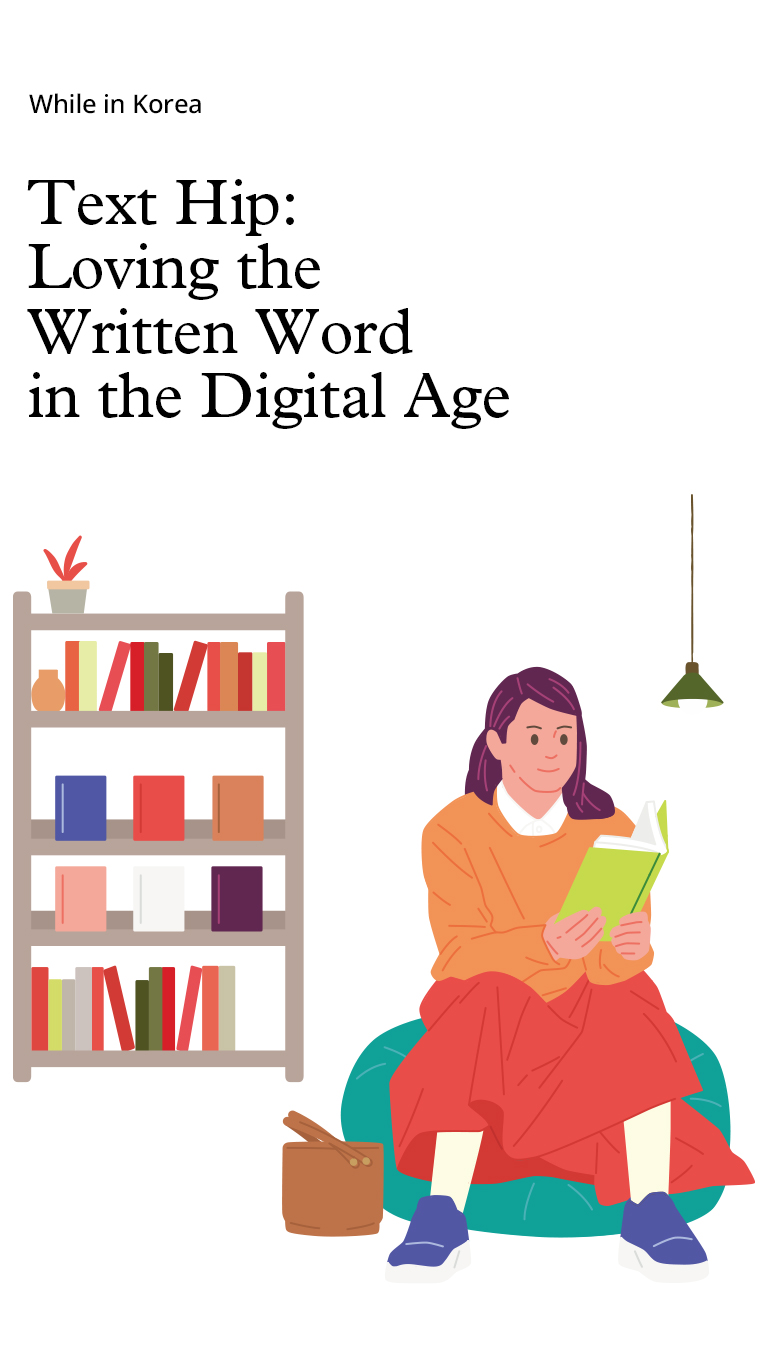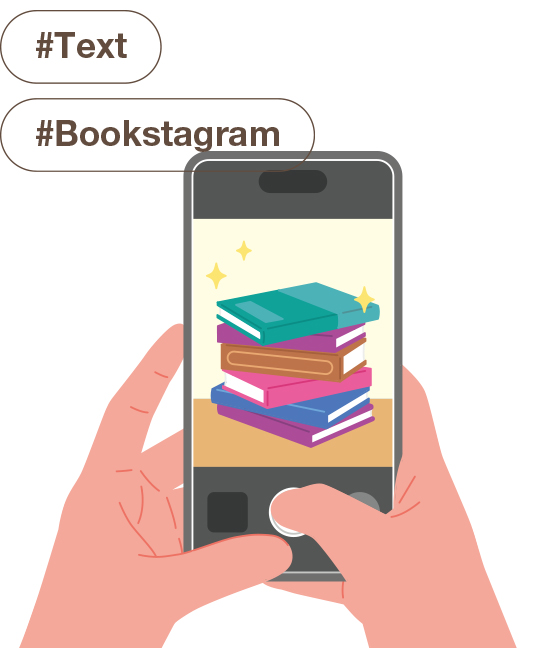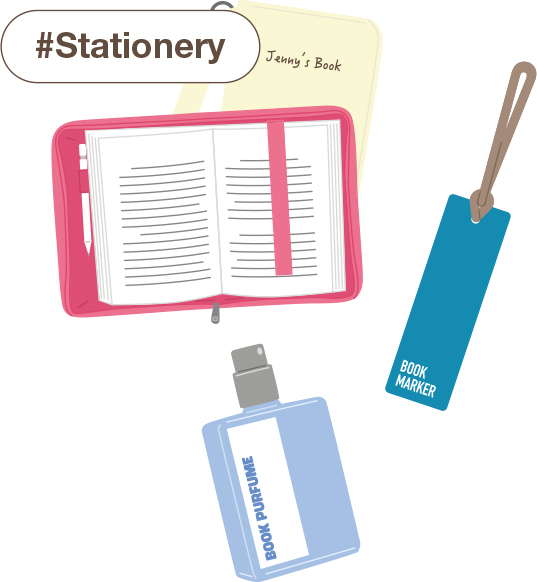
Young people in their 20s and 30s—including those in Korea—are so-called digital natives. They prefer e-books over paper books and consume video and audio content rather than long-form writing. However, a trend entirely at odds with this has emerged in Korea. This is the “text hip” trend, with young people again consuming books and long-form writing.
Writer. Sung Ji Yeon
Illustrator. RYUGOON
Korea is in the midst of a reading craze. Or, by extension, texts on reading and related consumption have become a fad. “Text hip,” an amalgamation of “text” and “hip,” describes the cultural phenomenon where young people find reading and long-form texts “cool” and consume said texts as a trend.
Some 150,000 people visited the Seoul International Book Fair during its five-day run in May 2024. People in their 20s and 30s accounted for 70% of the visitors, a statistic that indicated the great interest young people have in books. A bit later, novelist Han Kang’s winning of the Nobel Prize for Literature in October 2024 propelled the preexisting content, service and lifestyle trends focused on texts such as records, publications, letters and manuscripts based on reading to new heights.
As a result, book sales rose, and many people began enjoying books and other text-based mediums in a multifaceted way. People now visit cafes and bars with spaces where customers can enjoy books as well as libraries—once considered simply public spaces—to experience places or events related to the written word, sometimes traveling far distances to do so. Riding this trend, libraries conduct events to encourage reading by borrowing picnic mats and camping chairs, while publishing companies open pop-up stores with exhibits and readings related to the books they sell.
Many people participate in gatherings where they share their book experiences. They take part in offline meetings where they read or transcribe literature together, listen to lectures by writers, write their own books or engage in self-development by making writing a daily habit. Many people also share their opinions through online gatherings using teleconferencing.
Sales of items for reading have increased remarkably. People have begun buying book rings for perusing books with one hand, book rests for reading while lying down, and fountain pens and ink for transcribing works. Moreover, people also customize items themselves per their own needs rather than buy them off the shelves.
Also popular are reading-related services. A transcription program for desktops and an app, which suggests one good sentence from classical literature daily, generated word-of-mouth immediately after its release. A social media platform based on essays and other texts began drawing renewed attention, with a record number of entrants participating in its publishing project. Korea has a strong passion for reading and texts.

Why do young Koreans now think text is so hip? Firstly, because it’s a proper tool for young people today who pursue a new culture. Though older people might be used to text on paper and long-form writing, young people aren’t. They’re more familiar with video and audio content, so physical texts and long-form writing like books are a rare, unusual experience. They gain satisfaction from consuming unusual content like books based on their desire to be different. One could see as a desire to show oneself off.
Secondly, text is non-provocative and safe. Over the last couple of years, more and more people have grown addicted to quickly consuming stimulating content. The subsequent deficiencies in concentration and literacy have become social issues. Young people now look to text content to escape these problems. They choose the unfamiliar hobby of “reading” that can deepen their thoughts and awaken them to more meaningful content to build a healthy self.
Thirdly, there’s the influence of pop stars and entertainers. This began with K-pop group members recommending books or posing for photos at the airport carrying books. Fans began to take an interest in the books read or recommended by stars known for their intellectual charms, be it their eloquence on social media or proficiency in foreign languages. This sparked a reading craze as people began emulating the behavior and tastes of favored stars within Korea’s massive fandom scene.
When the “text hip” trend began, some skeptically asked whether people were reading just to be pretentious. Regardless of why people began reading, the “text hip” trend presents few problems as its impact has been very positive. It has given life to publishers trapped in the e-book and digital market and provided nutrients to allow Korea’s reading scene to grow. The “text hip” trend will continue to be a growth engine enriching Korea’s reading culture.
